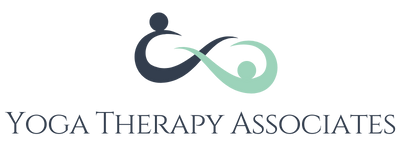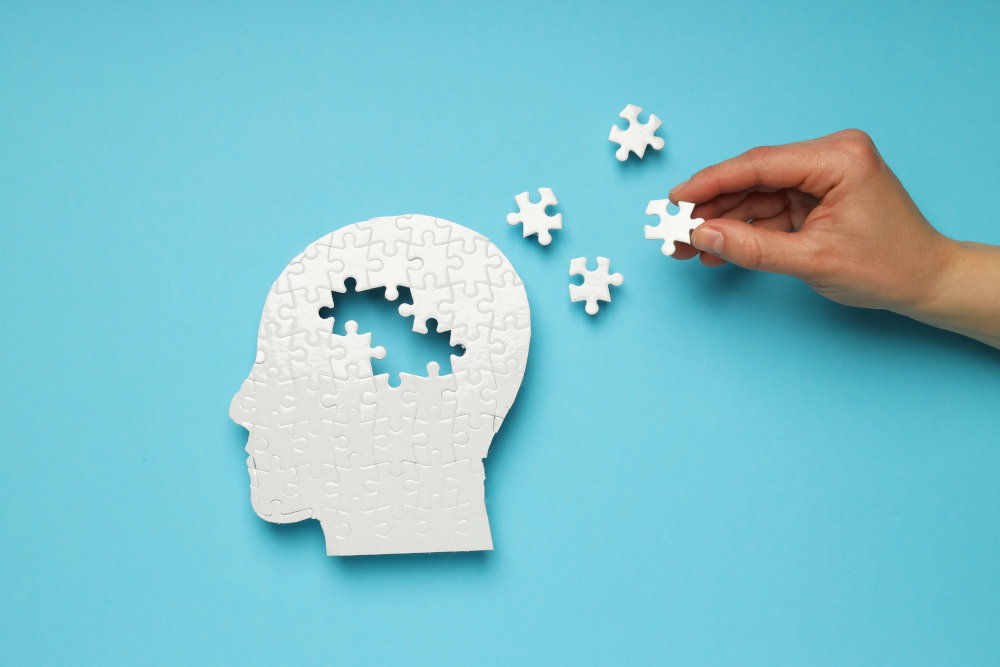By Christine Saari, MA, C-IAYT
Do you find yourself frequently struggling to remember important details or tasks, despite your best efforts and intentions, due to working memory problems? All of us can relate to walking into a room with a purpose and forgetting what it was, standing there with a blank in your mind.
But what if this was your daily reality, and it prevented you from being able to function at work or school? What if it made your family life tense and your social relationships begin to fade due to the embarrassment it caused you? For individuals with working memory problems, daily life becomes a constant struggle to organize thoughts and carry out tasks efficiently.
If you resonate with this struggle, know that you’re not alone. Whether you’ve been diagnosed with conditions like depression, ADHD, acute stress disorder, or carry the burden of past traumas, there may be a self-directed avenue to improve working memory that goes beyond conventional treatments like medication and talk therapy. And no, I’m not talking about sudoku; I’m referring to the lesser-known method of individualized yoga therapy.
Improve Working Memory With No Experience Required!
In this article, explore three yoga therapy techniques scientifically proven to enhance working memory by positively affecting brain and nervous system function. The best part? These techniques are free of side effects and you can practice them in the privacy of your own home. There’s no yoga mat or prior experience required. These techniques have demonstrated effectiveness in enhancing memory and cognitive function among individuals with health conditions often linked to memory loss, including Alzheimer’s disease, dementia, and traumatic brain injury. Yoga therapists adeptly modify and use these techniques to help clients with mental health diagnoses characterized by memory symptoms exacerbated by stress.
Discover how yoga therapy offers a personalized and holistic approach to improving brain health. Learn how yoga therapists select and adapt these techniques for your needs, tracking their efficacy to address the specific working memory symptoms that trouble you the most.
Yoga Therapy Techniques for Improving Working Memory
The role of yoga therapy in improving memory function is multifaceted, encompassing various techniques such as breathing exercises, chanting, and meditation practices. When practiced regularly, these components act as therapeutic training regimens to induce beneficial changes in the brain, enhancing cognitive function and memory retention. Many clients enjoy using these techniques regularly at home with support from a yoga therapist, leading to improvements in their quality of life.
Technique #1: Breathwork
Breathwork, also known as pranayama, helps relax and oxygenate the brain, improving overall cognitive performance. There are various breathwork techniques, some stimulating the nervous system while others relax it. Yoga therapists personalize breath ratios to restore healthy nervous system function, tracking memory-related symptoms to support better cognitive outcomes.
A Connection Between Nasal Breathing and Memory Recall
Recent scientific research has uncovered the connection between breathing and memory recall, with studies indicating that the rhythm of our breathing influences neural activity, affecting cognitive functions like emotional processing and memory recall1. Evidence suggests that inhalation, particularly through the nose, enhances memory function by creating electrical activity in the brain, especially in regions like the amygdala and hippocampus associated with emotion and memory. Deep, controlled breathing has shown to improve working memory capacity, which is crucial for holding and manipulating information in the short term. These findings pave the way for potential new therapeutic strategies targeting cognitive decline and memory-related conditions.
Technique #2: Chanting
The second technique employed by yoga therapists for clients struggling with working memory problems involves chanting. This practice engages the mind in a focused manner, promoting concentration and mindfulness, which are essential for memory consolidation and recall.
Chanting can take different forms, including mantra meditation and repeating affirmations, either aloud or silently in one’s head. Chanting might also include syncing physical actions with the mantra’s rhythm, such as swaying or using mudras, which involve tapping fingers.
A recent study found that a type of mantra meditation called kirtan kriya can enhance memory in individuals with Alzheimer’s disease, suggesting its potential role in preventing neurodegeneration2. Kirtan kriya utilizes repetition of the syllables “Saa, Taa, Naa, Maa” along with four corresponding mudra hand positions. This practice requires just 12 minutes daily, and has proven effective in improving memory among those with subjective cognitive decline, mild cognitive impairment, and high stress levels.
Chanting Can Increase Telomerase
Additionally, kirtan kriya has shown to increase telomerase by 43%. Telomerase is an enzyme that plays a crucial role in maintaining the length of telomeres, protective caps at the ends of chromosomes, and increasing it is vital for individuals with memory issues as it can help slow down cellular aging and potentially mitigate cognitive decline.
Given these findings, yoga therapists are integrating kirtan kriya into their sessions with individuals facing working memory challenges, aiming to facilitate brain changes and enhance working memory function.
Technique #3: Meditation
Last but not least, we come to meditation. While many envision meditation as an uncomfortable experience of sitting on the floor and struggling to clear their minds, quite the opposite is true. Yoga therapists provide tailored meditation techniques that clients often find enjoyable, fostering mental clarity and calmness while alleviating stress and anxiety—both known to hinder memory function.
Meditation Changes Brain Structure
Meditation’s impact on memory is an intriguing intersection of ancient practices and modern neuroscience. Evidence suggests that meditation can induce changes in the brain’s structure, known as neuroplasticity, possibly leading to growth in the hippocampus, a crucial area for memory function3. Meditation has been found to stimulate changes in various brain regions associated with attention, interoception, and sensory processing, potentially enhancing memory capacity4.
Meditation Reduces Stress Hormones Affecting Working Memory
This technique not only affects the brain’s structure, but also helps reduce the harmful effects of both acute and chronic stress on working memory. Many clients notice that stress makes their memory issues worse. Stress has been connected to memory problems and smaller hippocampal volumes over a lifetime5. Meditation helps by lowering stress, reducing cortisol levels, and creating a more relaxed atmosphere. This helps the hippocampus function better, which improves memory and learning. Meditation also appears to enhance working memory. This is apparent even when stress levels are high, which is crucial for tasks like problem-solving and understanding6.
Meditation Isn’t One-Size-Fits-All
Yoga therapists specialize in tailoring various meditation and mindfulness practices to suit individual preferences and needs, considering their specific medical history. For example, a client recovering from a stroke affecting working memory might engage in meditations designed to enhance neuroplasticity. These techniques are aimed at rewiring neural pathways. This meditation could involve focusing on awareness pathways that cross the body’s midline to engage complex awareness levels.
On the other hand, a client experiencing acute stress disorder along with working memory issues may opt for a meditation to alleviate stress. For instance, they might engage in breath awareness meditation, focusing on passively observing the breath, potentially concentrating on specific body parts like the belly or feet.
Meditation Improves Memory Recall in People With Depression
Another example is using loving-kindness meditation for clients dealing with depression and memory issues. A study showed that this type of meditation can improve memory recall in individuals with a history of depression7. Participants practiced ten-minute meditations daily to promote happiness. After four weeks, the meditation group remembered more specific memories compared to the control group.
The Role of Yoga Therapists in Selecting and Adapting Your Technique
You don’t need to move to a cave in the Himalayas to get the benefits of breathwork, chanting, or meditation for improved memory function. These techniques offer practical and accessible health options, serving as a valuable adjunct to medical care for individuals suffering from working memory challenges.
Yoga therapists are there to assist you in selecting and skillbuilding toward learning the most effective technique to help you achieve your goals. By keeping you accountable, yoga therapists use an outcome-based approach to track the effectiveness of your home practice routine. This ensures that you are supported along the way. A metric is chosen to reflect the impact of your memory symptoms on your daily activities, and it’s monitored regularly during your home practice plan. This data informs the frequency and duration of your practice routine and allows for adjustments if needed to ensure effectiveness.
So before turning to an app or program that may not align with your needs, consider working with a yoga therapist to easily incorporate breathwork, chanting, or meditation practices into your health care plan. This can make the process both accessible and enjoyable.
Yoga Therapy Provides New Options to Improve Working Memory
Navigating daily life with working memory challenges can be an ongoing struggle, affecting various aspects of personal and professional life. Throughout this exploration, we’ve uncovered three scientifically proven yoga therapy techniques aimed at enhancing working memory by positively impacting brain structure and function. The beauty of these techniques lies in their accessibility and efficacy, free of side effects and adaptable to individual needs. From breathwork to chanting and meditation, each component offers a unique pathway to bolstering brain health and reclaiming cognitive vitality.
Moreover, yoga therapists play a crucial role in guiding and tailoring these techniques to address specific memory symptoms. Yoga therapists offer personalized support for individuals with various physical and mental health conditions. As people increasingly demand alternative health solutions, yoga techniques such as breathwork, chanting, and meditation are gaining recognition for their significant potential. If you’re prepared to enhance your cognitive abilities, consider exploring individualized versions of these techniques as part of your health journey.
Yoga Therapy Associates provides individualized yoga therapy services. Contact us today to schedule a free consultation and find out how yoga therapy can help you.
References
- Zelano, C., Jiang, H., Zhou, G., Arora, N., Schuele, S., Rosenow, J., & Gottfried, J. A. (2016). Nasal respiration entrains human limbic oscillations and modulates cognitive function. Journal of Neuroscience, 36(49), 12448–12467. https://doi.org/10.1523/JNEUROSCI.2586-16.2016
- Khalsa, D. S. (2015). Stress, meditation, and Alzheimer’s disease prevention: Where the evidence stands. Journal of Alzheimer’s Disease, 48(1), 1–12. https://doi.org/10.3233/JAD-142766
- Luders, E., Toga, A. W., Lepore, N., & Gaser, C. (2009). The underlying anatomical correlates of long-term meditation: Larger hippocampal and frontal volumes of gray matter. NeuroImage, 45(3), 672–678. https://doi.org/10.1016/j.neuroimage.2008.12.061
- Hölzel, B. K., Carmody, J., Vangel, M., Congleton, C., Yerramsetti, S. M., Gard, T., & Lazar, S. W. (2011). Mindfulness practice leads to increases in regional brain gray matter density. Psychiatry Research, 191(1), 36–43. https://doi.org/10.1016/j.pscychresns.2010.08.006
- Lupien, S. J., McEwen, B. S., Gunnar, M. R., & Heim, C. (2009). Effects of stress throughout the lifespan on the brain, behavior, and cognition. Nature Reviews Neuroscience, 10, 434–445. https://doi.org/10.1038/nrn2639
- Jha, A. P., Stanley, E. A., Kiyonaga, A., Wong, L., & Gelfand, L. (2010). Examining the protective effects of mindfulness training on working memory capacity and affective experience. Emotion, 10(1), 54–64. https://doi.org/10.1037/a0018438
- Lathan, A., & Dritschel, B. (2023). Increasing autobiographical memory specificity: Using kindness meditation to impact features of memory retrieval. PLOS ONE, 28(7), e0287007. https://doi.org/10.1371/journal.pone.0287007




